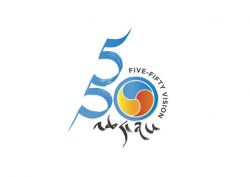
Dharamsala: CTA is convening the first-ever Global Summit of International Tibetan Associations/Organizations from April 2-4, 2020 in Dharamsala under the Five-Fifty series of forums.
The four themes of the Summit are:
- Theme 1: Enhancing International Advocacy for Tibet
- Theme 2: Safeguarding Tibetan Culture, Education and Language
- Theme 3: Strengthening the Tibetan Associations/Organizations
- Theme 4: Deepening the Ties With the CTA
The three-day Summit will bring together over 125 representatives of various Tibetan associations and organizations affiliated with the Offices of Tibet. These associations are mostly registered charities and have their own board including some who own and operate community centers and have paid staff. Most provide a core set of programs including weekend language classes. Under Theme 1, the Summit will discuss the issue of how Tibetans residing overseas can exercise their rights as citizens of the host country and become stronger advocates for Tibet. Theme 2 will include discussion on how existing programs on cultural preservation, language and education such as the weekend schools can be strengthened and what support the CTA can provide. Theme 3 will look into further strengthening the Tibetan Associations/Organizations. Theme 4 will address the important issue of how the relationship between the CTA and the Tibetan community organizations can be further strengthened and formalised.
The Summit is being organized by SARD, Department of Finance and the Department of Information and International Relations (DIIR). It is funded by the U.S. State Department’s Bureau of Democracy, Human Rights, and Labor (DRL).
The CTA’s Five-Fifty Vision calls for maximizing efforts to resolve the Tibet issue in the short term based on the Middle Way Approach while sustaining and strengthening the resilience of the Tibetan people, the Tibetan freedom struggle, and Tibetan culture and identity for the next fifty years if need be. The Five-Fifty Forums are organised to help the Tibetan leadership and community address some core issues related to the resilience of the Tibetan community, culture and the Tibetan freedom movement.

